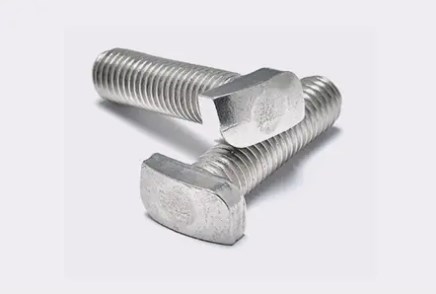1×7 Stainless Steel Wire Rope Product Introduction Overview: The 1×7 stainless steel wire rope is a high-quality, durable, and versatile wire rope constructed from a single strand of seven individual ...
See DetailsIn modern industrial manufacturing and assembly, stainless steel bolts are among the most representative fasteners. They are renowned not only for their superior mechanical strength and excellent corrosion resistance, but also for their wide applicability and stable service life, making them indispensable key components in various equipment structures. With the advancement of industrial automation and precision, the material selection, manufacturing processes, and performance requirements of stainless steel bolts are constantly being upgraded, becoming an important direction for the development of connection technology.
Material Characteristics and Structural Advantages of Stainless Steel Bolts
The core advantage of stainless steel bolts stems from their material properties. Stainless steel contains a certain proportion of chromium. When the chromium content reaches a certain proportion, a dense chromium oxide passivation film forms on the steel surface, giving it excellent corrosion resistance. This passivation film can self-repair after damage, allowing the bolt to maintain stable mechanical properties even in humid, acidic, alkaline, or high-salt environments. The high strength and hardness of stainless steel make the bolts less prone to deformation or loosening under high loads or vibration conditions, ensuring long-term reliability of the connection.
Different types of stainless steel, such as austenitic, ferritic, martensitic, and duplex stainless steels, exhibit varying characteristics in strength, corrosion resistance, and temperature resistance due to their different microstructures. Austenitic stainless steel bolts are the most widely used, possessing excellent ductility and toughness, and maintaining stable performance in both low and high temperature environments. High-strength duplex stainless steel bolts combine high tensile strength with good resistance to chloride stress corrosion, and are widely used in petrochemical, marine engineering, and energy equipment fields.

Manufacturing Process and Precision Control of Stainless Steel Bolts
The manufacturing process of stainless steel bolts involves precise forming and heat treatment processes. From the selection of raw materials, the composition, purity, and microstructure of the stainless steel must be strictly controlled to ensure stable performance during cold heading, thread rolling, and heat treatment. Bolt heads are typically formed using cold heading, achieving uniform dimensions and stress distribution through high-precision molds. The threaded portion is formed using roll forming, which not only improves surface strength but also reduces metal damage from cutting, thereby enhancing fatigue life.
After manufacturing, surface treatment is also a crucial step. To improve the corrosion resistance of stainless steel bolts, passivation treatment is often performed to strengthen the density of the surface oxide layer. In some applications, electropolishing or mechanical polishing is also used to make the bolt surface smoother and reduce the risk of microcracks. For bolts used in special environments, solution heat treatment or cryogenic treatment can be performed to stabilize the internal structure and improve overall mechanical properties.
Performance and Applications of Stainless Steel Bolts
Stainless steel bolts possess high strength, high corrosion resistance, and excellent heat resistance, maintaining connection stability under various complex working conditions. Their tensile strength and shear strength enable them to play a crucial load-bearing role in structural components, while the inert nature of stainless steel ensures that it does not readily react in chemical media, thus extending the overall service life of equipment.
In terms of applications, stainless steel bolts are widely used in machinery manufacturing, the automotive industry, building structures, energy equipment, shipbuilding, and industries with high requirements for hygiene and corrosion resistance, such as food, pharmaceuticals, and electronics. Especially in marine environments and chemical equipment, stainless steel bolts, with their resistance to salt spray and acids and alkalis, effectively prevent structural loosening and failure caused by corrosion. With the development of renewable energy and intelligent manufacturing, high-performance stainless steel fastening systems are increasingly being used in wind power equipment, photovoltaic supports, and intelligent assembly machinery.

Technological Development and Future Trends of Stainless Steel Bolts
With advancements in materials science and manufacturing technology, stainless steel bolts are developing towards higher performance, lighter weight, and greater intelligence. The application of new alloy stainless steels has improved the strength-to-density ratio of bolts, allowing them to maintain high strength while reducing overall weight, meeting the demands of high-end equipment manufacturing. Simultaneously, the development of surface modification technologies, such as ion implantation and PVD coatings, has given bolts higher wear resistance and corrosion resistance, extending their service life and reducing maintenance costs.
As the most basic yet crucial fastening component in industrial manufacturing, stainless steel bolts embody the comprehensive level of materials science, process control, and structural design. Every technological innovation in them enhances the reliability and safety of industrial equipment. Whether in engineering structures operating in extreme environments or in the intricate connections of high-precision equipment, stainless steel bolts, with their stable performance and enduring quality, support the stability and development of modern industry.
